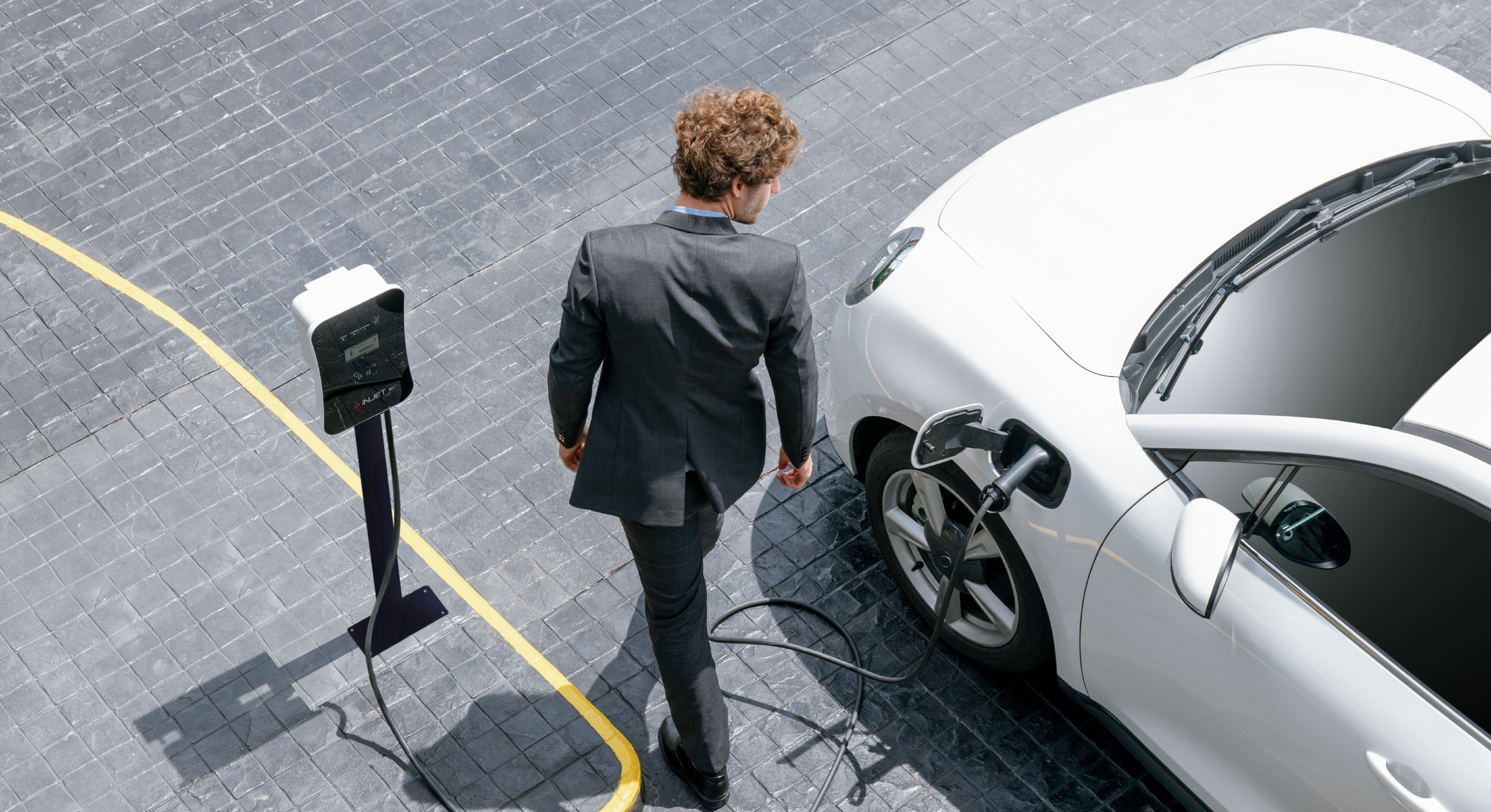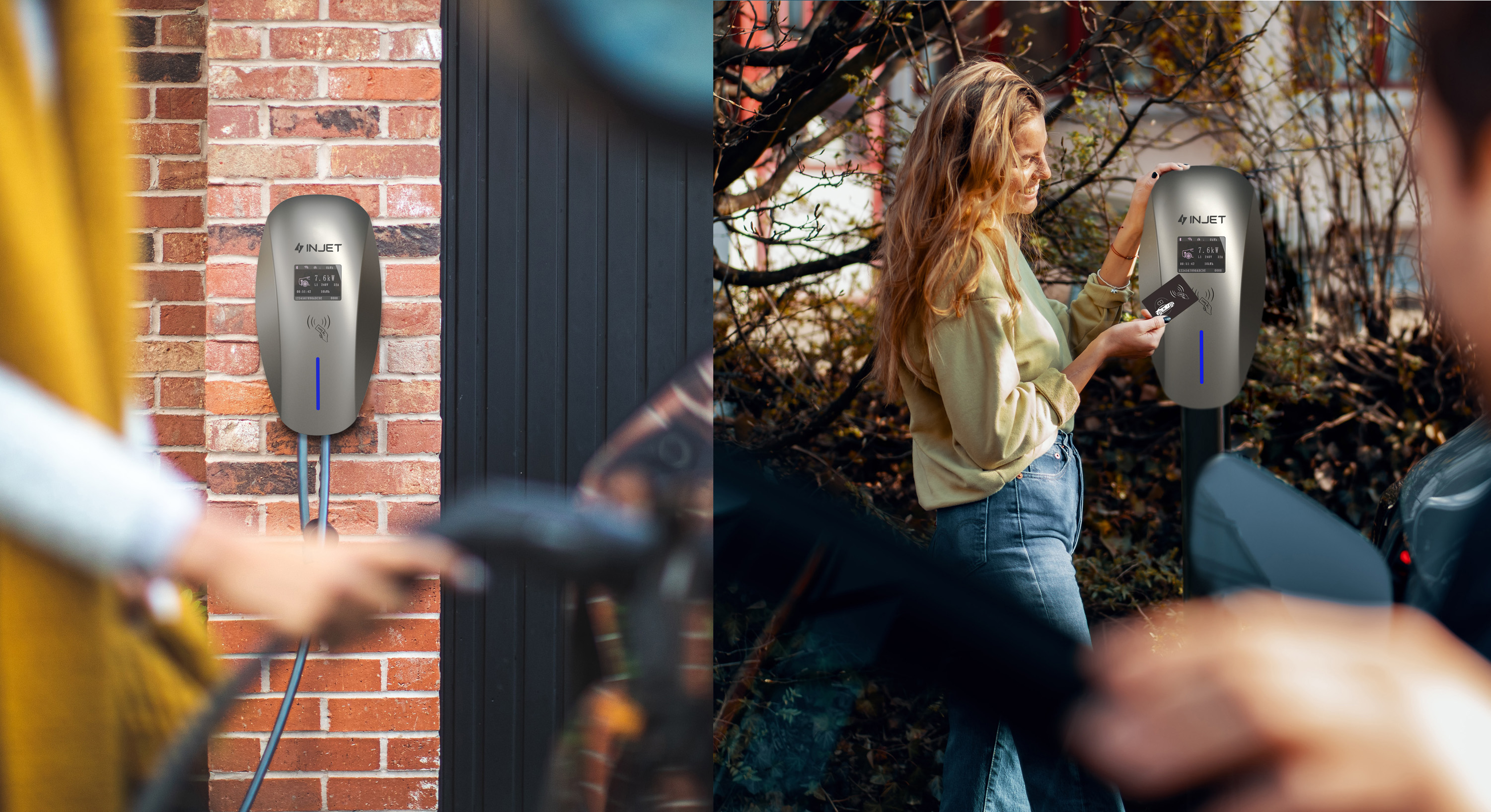Installing a home charging station offers unparalleled convenience for every household. Currently on the market home chargers are mostly 240V, level2, enjoy a fast charging lifestyle at home. With the ability to charge at your convenience, it transforms your residence into a hub for effortless charging. Enjoy the freedom of topping up your vehicle anytime, streamlining your travel plans with quick and convenient recharging. Embrace the ease and practicality of home charging, tailored perfectly to fit your family's on-the-go lifestyle.
What Kind of EV Charger are Used on the Market?
Currently, most residential charging stations on the market are configured as 240V Level 2, with power ranging between 7kW to 22kW.
Regarding compatibility, our previous articles have provided detailed insights. The majority of charging stations feature Type 1 (for American vehicles) and Type 2 (for European and Asian vehicles) connectors, catering to most electric vehicle models on the market (Tesla requiring an adapter).
Thus, compatibility isn't a concern; simply acquire a charging device suitable for your vehicle. Now, let's delve into other crucial aspects to consider when selecting a home charging station.
( Injet Swift floor-mounted home charger)
What Features You should Consider When Choosing A EV Charger at Home?
When selecting a home EV charger, several factors should be taken into account to ensure optimal performance, safety, and convenience. Here are some essential features to consider:
1. Charging speed: What parameter affects your charging speed?
First is the current charging level. Most level2 charging devices on the market for home use are 32 amps, and it takes about 8-13 hours to fully charge the whole battery, the more amps your ev charger can bear and the charging speed is faster. But for most home users, thet have to balance the cost and time when choose an affordable home charger.
Level 1 chargers are suitable for overnight charging, while Level 2 chargers offer significantly faster charging times, ideal for daily commuting.
If you are using the solar energy or the home energy storage system to upspeed your ev charging efficiency, you should use a pure sine wave inverter, which can ensures your charging stability and safety.
You can turn on your charging device at night before going to bed, and you can fully charge your vehicle all night long. Plus, the cheapest times for electricity are during late night and early morning when most people are asleep. Overall, a 32A home charging station is a great choice.
2. Installation and Placement: Where would you like to install your home charging station?
Choose a convenient and safe location for the charger, considering factors like cable length, accessibility, and weather protection. If you plan to install it in the garage or outdoor wall, opting for a wall-mounted wallbox charger is recommended as it saves space and easy to install.
For outdoor installation away from the house, the weather impact is crucial. Choose a floor-mounted charging station and a certain level of waterproof and dustproof protection to ensure its longevity. Currently, most charging stations on the market come with IP45-65 protection ratings. An IP65 rating indicates the highest level of dust protection and can withstand low-pressure water jets from any direction.
(Injet Sonic wallbox & floor-mounted AC charger)
3. Safety features: What safety precautions should be considered when purchasing a home charging station?
Certifications are crucial, a complete product certificate is the necessary guarantee for you to purchase a ev charger. choosing products certified by authoritative safety certification agency can be more secure, through these certified products need to be strictly audited. Authoritative certification: UL certification, energy star, ETL, etc. applicable to U.S. standard products; CE is the most authoritative certification of European standards.
Home charger with a variety of protection is also very important, the basic waterproof level and so on. Choosing a branded business will also guarantee after-sales, usually providing 2-3 years warranty, after-sales phone 24/7 brand is more trustworthy. Ensure the charger is equipped with a GFCI to protect against electrical shocks, also your ev charger should have a built-in overload protection to prevent damage to your electrical system.
4. Smart controls: How would you like to manage your home charging station?
Currently, there are three main ways to control charging stations, each with its own advantages. Use a smartphone app to monitor charging status, adjust settings, and receive notifications. A app-based smart control allows remote, real-time monitoring of your charging status and usage, schedule charging times to take advantage of off-peak rates or to avoid overloading your electrical system.
Some chargers can integrate with your home energy management system to optimize energy consumption, that would be great for your home energy management and charging cost saving.
RFID cards and plug-and-charge are more basic methods, beneficial in areas with poor network connectivity, it can insure that only the authorized people can use your ev charger, prevent people from stealing your power. Choosing a charging device that meets your daily needs is preferable.
5. Cost considerations: What price range of charging station products to choose?
Compare the upfront costs of different chargers, including the charger itself and installation expenses, the market offers charging products ranging from $100 to several thousand dollars. Cheaper options entail higher risks, potentially compromising safety without authorized certifications, or lacking quality after-sales support, which might reduce product lifespan. It's advisable to select a charging product with after-sales support, safety certifications, and basic smart features for a one-time investment in safety and quality.
Warranty and Customer Support
Check the warranty coverage for the charger, including parts and labor. You can look for a manufacturer with a reliable customer support team to assist with installation, troubleshooting, and maintenance.
By now, you probably have your preferred standards for choosing a home EV charger. Take a look at our range of home charging station. Injet Swift, Injet Sonic, Injet Mini are high-quality Home chargers independently developed, designed, and manufactured by Injet New Energy. They have passed UL and CE certification, boasting IP65 high-level protection, backed by a 24/7 customer support team, and offering a two-year warranty.


